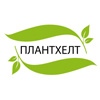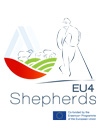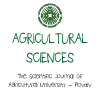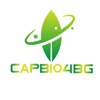Biochemical quality of plant produce
|
Course title: |
Biochemical quality of plant produce |
|
|
Course code: |
AFBQP |
|
|
ECTS: |
3 |
|
|
In-class hours |
Lectures: |
15 |
|
Laboratory work/Tutorials: |
15 |
|
|
Self-preparation hours |
Practical training: |
- |
|
Other: |
45 |
|
|
Total hours: |
75 |
|
|
Language: |
English |
|
|
Study cycle: |
BSc |
|
|
Semester: |
Winter |
|
|
Faculty: |
Faculty of Agronomy |
|
|
Name of the lecturer(s): |
Assoc. Prof. Lyubka Koleva-Valkova, PhD |
|
|
Mode of delivery: |
Face-to-face, distance learning |
|
|
Prerequisites: |
no |
|
|
Learning outcomes of the course unit: |
People's attitude to food, as a natural and inevitable need, has been changing along with the changing social conditions and the development of society. Undoubted proof of this is the enormous interest that modern consumers, in Europe and the world, and now in our country, have regarding the quality and safety of the food they consume. This determines the need for the labor market to produce high-quality crop production that meets the requirements of European legislation. The course "Biochemical Quality of Plant Produce" aims at ensuring the theoretical and practical training of specialists who develop and successfully implement in practice modern agrotechnical measures in plant growing, guaranteeing high-quality production as well as the safety and health of consumers. Students will have knowledge of the quality characteristics of various plant products, will be able to identify and control the factors responsible for the synthesis and accumulation of various beneficial compounds in plants, will have competencies regarding anti-food and hazardous compounds found in plant production. |
|
|
Course contents: |
Lectures: 1. Basic concepts of plant production quality. Biochemical parameters characterizing the biological value of the product. (1 h) 2. Proteins and amino acids. Biological value of proteins. Agricultural crops sources of high-quality proteins. Factors influencing the accumulation of proteins in plant production. (2 h) 3. Carbohydrates - types. Agricultural crops sources of starch, pectin, inulin and other carbohydrates. Factors influencing the accumulation of carbohydrates in plant production. (2 h) 4. Fats and oils. Biological value of vegetable oils. Content of essential fatty acids. Agricultural crops a major source of high quality vegetable oils. Factors influencing the accumulation and composition of vegetable oils in plant production. (2 h) 5. Vitamins and organic acids. Agricultural crops sources of vitamins and organic acids. Factors influencing the content of vitamins and organic acids in plant production. (2h) 6. Secondary metabolites: polyphenols, tannins, anthocyanins, dyes, essential oils and others. Agricultural crops sources of valuable secondary metabolites. Factors influencing the clumping and content of secondary metabolites. (2 h) 7. Xenobiotics. Presence of undesirable substances of non-vegetal origin in plant production: pesticides and heavy metals. Factors determining the accumulation of xenobiotics in plant production. (2 h) Laboratory Practical Work: 1. Proteins. Quantitative determination of gluten. (3 h) 2. Vitamins. Methods for determining vitamins. (3 h) 3. Methods for the analysis of lycopene or anthocyanins, carotenoids, and betaine - spectrophotometric and liquid chromatography. (3 h) 4. Biochemical methods for the analysis of polyphenol compounds, antiradical activity, analysis of organic acids. Determination of pesticide residues. (3 h) 5. Fats and oils. Quantitative determination of crude fat. Qualitative characteristics and composition of the oils. Concept of dry, semi-dry and non-drying oils. (3 h) |
|
|
Recommended or required reading: |
1. Agricultural biochemistry. Chesworth J.M., Stuchbury T., Scaife J.R.1998. Chapman and Hall. 2. Phenolics in food and nutraceuticals. Shahidi F. and Naczk M. 2004. CRC PRESS. 3. Food chemistry and analysis. Metodical book of Practical course. 2012. Aldona Baltušnikienė. Kaunas. 4. Manual of methods for determining micronutrients in fortified foods. 2010. Hashem Jaas. 5. Method validation and quality control. Procedures for pesticide residues analysis in Food and feed. https://biochem.oregonstate.edu/content/biochemistry-free-and-easy https://oli.cmu.edu/courses/biochemistry-open-free/ https://bio.libretexts.org/Bookshelves/Biochemistry/Book%3A_Biochemistry_Online_(Jakubowski |
|
|
Planned learning activities and teaching methods: |
The course includes the following mandatory components: lectures, laboratory work, seminars, discussion, as well as student self-preparation. The lectures are delivered by means of Power-Point presentations. All lectures can be held online via the Microsoft Teams platform. |
|
|
Assessment methods and criteria: |
Exercises evaluation. Written exam via test. The test includes 20 questions. Every correct answer gives 1 point. The minimum points for a successful exam are 7 points. |
|
 - Събития по случай 80-я юбилей на АУ
- Събития по случай 80-я юбилей на АУ











